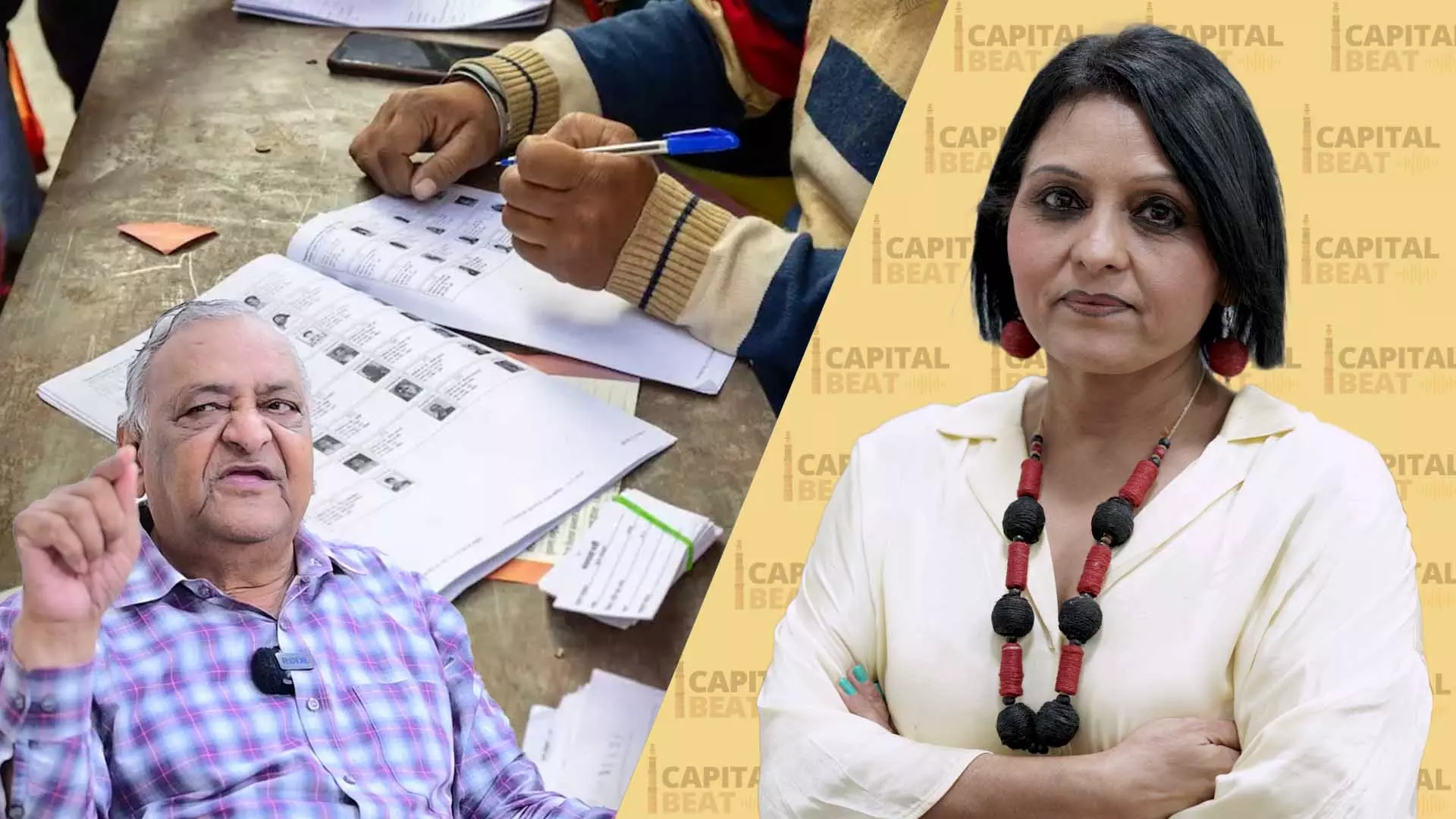
Bihar SIR: Is EC using ‘citizenship doubts’ to disenfranchise 3 lakh voters? | Capital Beat
Three lakh voters in Bihar’s border districts have been served notices by the EC under the SIR drive, sparking a political row over citizenship and voter rights

In the latest episode of Capital Beat, election data scientist Dr Pyara Lal Garg dissects the Election Commission's controversial move to issue notices to 3 lakh voters in Bihar over dubious citizenship claims. With Assembly polls approaching, this move raises critical questions about electoral integrity, minority targeting, and institutional accountability.
What does the Election Commission’s notice to 3 lakh “doubtful citizens” imply?
The Election Commission is acting beyond its legal mandate. The ER enumeration form used for verification violates Rule 8 of the Registration of Electors Rules, 1960. This unauthorised form has become a tool to question the citizenship of voters, disproportionately targeting minority-dominated districts like Kishanganj, Araria, and Purnia.
Is this a form of voter profiling?
Absolutely. Data shows removal rates of 10–15% in Muslim-majority areas compared to the state average of 8.33%. The EC’s actions align with a political agenda to disenfranchise minority voters, who traditionally do not support the BJP. This isn’t about citizenship verification; it’s about electoral manipulation.
How can affected voters protect their rights?
Submit Aadhaar cards as proof of identity, but ensure you get a signed receipt from Booth Level Officers (BLOs) acknowledging the submission. Without a receipt, officials might later claim documents were “invalid” or “missing.” Political parties must assist voters in securing these acknowledgments to prevent mass disenfranchisement.
Why are duplicate voters still found despite the EC’s “purification” drive?
The EC’s failure to eliminate 67,826 duplicate voters in just 15 constituencies proves deliberate negligence. This isn’t an oversight, it’s a calculated effort to retain bogus voters who benefit the ruling party while removing legitimate ones. The EC is committing a fraud against democracy.
Should the Supreme Court intervene more forcefully?
The court’s direction to accept Aadhaar cards is a step forward, but it lacks urgency. The EC continues to conceal data from independent analysts, preventing scrutiny. The court must demand full transparency and halt the exclusion process until genuine verification is completed.
Is the EC’s claim of 91.11% document submission credible?
No. Reports indicate BLOs often fill out forms arbitrarily or leave them blank. The EC refuses to publish raw data for public verification, which suggests the numbers are inflated. If the EC were honest, it would share data with independent experts for validation.
What is the ultimate goal of this exercise?
To disenfranchise voters in Opposition-heavy areas under the guise of citizenship verification. The EC is weaponising bureaucratic processes to alter electoral outcomes. This is a criminal subversion of democracy, not an administrative exercise.
The content above has been generated using a fine-tuned AI model. To ensure accuracy, quality, and editorial integrity, we employ a Human-In-The-Loop (HITL) process. While AI assists in creating the initial draft, our experienced editorial team carefully reviews, edits, and refines the content before publication. At The Federal, we combine the efficiency of AI with the expertise of human editors to deliver reliable and insightful journalism.

